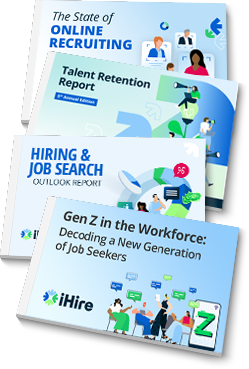- Employer Resources
- |
- Last Updated: May 19, 2021

How to Conduct a Stress Interview
Find the Right Talent for High-Pressure and Fast-Paced Environments
Stress interviews can be among the most uncomfortable and difficult methods available for screening candidates, as the hiring manager must identify each person's strengths and weaknesses without building rapport. However, this interview strategy can also be extremely helpful for identifying future hires who will thrive in high-pressure work environments, which may in turn allow companies to slash their employee turnover. Use the guide below for information on what a stress interview is and tips on how to conduct a stress interview successfully.
What is a Stress Interview?
A stress test interview is designed to make the candidate nervous and uncomfortable. The goal is to reveal how each applicant would hold up under the demands of their new role. This method of screening candidates is most common in sectors that require employees to perform frequently in fast-paced or high-pressure environments, such as journalism, law enforcement, or sales.

Delivering an Effective Stress Test Interview
For some hiring managers, it can be difficult to create such an antagonistic atmosphere. Empathetic interviewers may struggle to put job candidates on the spot and feel guilty for making the meeting such a discouraging experience.
In order to make a stress test interview work, however, it’s important to have the right mindset. Stress-based interview questions are not sadistic and cruel—they are a tool to identify future hires who can deliver necessary results under the high-pressure conditions of the job. Focus on creating a situation where applicants have to overcome obstacles and make quick decisions just like they will need to if hired, not on making them angry.
5 Stress Interview Techniques
- Intimidating Situations: Before you even begin asking stress interview questions, you can take the interviewee out of their physical comfort zone. Rearranging the room so that the interviewee is in a lower chair than the interviewer, or at the opposite end of a particularly long, intimidating table, can create an oppositional atmosphere. Conducting a panel interview instead of the usual one-on-one format without warning the candidate ahead of time can also put them on edge.
- Negatively Framed Questions: Many traditional or situational style questions can be repurposed as stress-based interview questions. “Tell me about your role with your current employer” might become “Why haven’t you been promoted at your current company yet?” “Why are you the right candidate for this position?” could be adapted to “What makes you think you can handle this job when you only have two years of experience in this line of work?”
Create Your Account Today

- Odd or Impossible Questions: Stress interview questions may also be unrelated to the role you’re hiring for or not have an answer. Interviewees can easily feel thrown off their game when asked a question they haven’t prepared for or don’t know how to answer. “Describe the color yellow to someone who’s blind,” for example, presents an unexpected question, while allowing you to see how your potential future hires approach unfamiliar problems.
- Criticism: Criticizing candidates’ responses will allow you to gauge how they respond to unpleasant feedback. A simple, “And why would you choose that solution?” can reveal which applicants think through their plans to the end, and which will wobble under scrutiny.
- Demeaning Behavior: Of the stress interview techniques described in this list, exhibiting demeaning behavior is likely to be the most difficult for hiring managers who feel uncomfortable treating candidates harshly. During the course of the meeting, the interviewer may interrupt the applicant mid-response, act entirely disinterested in what is being said, or claim that the interviewee is over-exaggerating their value.

When planning the logistics for how to conduct a stress interview at your company, remember that the interview has a significant impact on how prospective new hires will view your organization. This method should only be used if it will truly help you find the right talent for your company.
Consider having a coworker show them around the building or speak with them after the meeting with a positive disposition, to balance the negative reaction some candidates may have to a stress interview. You might even consider telling candidates after the meeting that it was intentionally stressful. This way, you can still build a positive relationship with top talent, while also assessing how they function under pressure.
RELATED RESOURCES
Hiring? You're in the Right Place.
- Reach unique talent: 51% of our candidates aren't using other job boards
- Connect your ATS and get 6x more applications with iHire's apply process
- Get matching candidate resumes sent straight to your inbox
We Value Your Privacy




